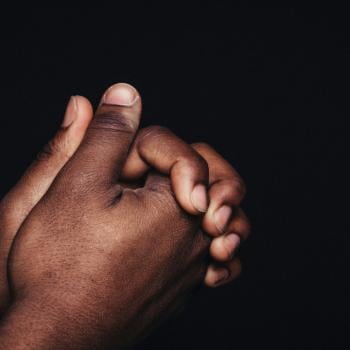In The Fallen Idol, Phillipe is more than simply fascinated by and drawn to Baines; he is transformed by him. The servant's innocuous tall tales, harmlessly rooted in his desire for affection and attention, prove to be his undoing when Phillipe, so thoroughly steeped in the romantic persona his friend has created, is no longer capable of recognizing Baines' true (and innocent) character. The young boy's good-hearted lies mirror his elder's actions closely: innocent enough at their origin, the well-intentioned dishonesties grow wildly out of control, and when the time comes for Phillipe to save Baines by a simple telling of the truth, his word is no longer believed by those he most desperately wishes to convince. Through his desire to be more like his mentor, Phillipe has succeeded beyond his wildest dreams; he has made Baines into an idol, and has been changed by that idol into the very thing he has been idolizing.
God warns us against idols not because He is jealous of our misguided affections, but because of their dangerous powers of transformation. Our pursuit of them does more than merely turn us away from Him; it changes us—subtly, but inextricably, altering the way we perceive the world, and destroying our ability to correctly recognize the relative value present in all created things. The pursuit of earthly idols—Fame, Mammon, Sex, Food, and a host of others—produces in us the very shortcomings of those things we wrongfully worship; all too quickly, we find ourselves mirroring their blindness, muteness, and deafness, leaving us gasping for the Divine Breath so vital to our salvation.
We like to think of our obsessions and idolatries in Augustinian terms—"Give me chastity and continence, only not yet"—confident that we can dismiss them as quickly and as easily as we please. But if we think that we can transfer our misguided affections back to God at a moment's notice, we are in for a harsh (and humbling) awakening. As The Fallen Idol reminds us, we become like the idols we pursue, and pursuit of earthly idols dooms us to a lifetime of struggling to fill our infinite desire with finite goods.
"We are what we eat," it is said. But far more importantly, we become what we worship. Is it such a surprise that worshiping anything but the Infinite Good leaves us unsatisfied?
(Sadly, The Fallen Idol is unavailable through the usual streaming sources. It is, however, available from Criterion.)





